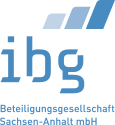Investment process
Learn more about our unique investment approach and exit scenarios.
Process
When you first contact us, all you will need is a brief description of your project. An initial examination of the merits of investing and the approach to be taken will be made on the basis of this, and – if we are interested – we will discuss the venture with you for the first time.
The formal investment process can typically be subdivided into the following stages:
a) Initial assessment (see above)
The merits of the business model are examined in more depth. We will also check for compliance with the refinancing conditions of the fund, in particular EU principles. You can expect the first feedback within no more than 14 days.
b) Detailed examination
The management team validates the technological approach and the stability of the business model on the basis of the market positioning to which you aspire with the help of internal and external expertise.
c) Preliminary contract/Term sheet
The preliminary contract establishes the main conditions attached to the investment, such as the right to have one’s voice heard, the right to information, the transfer/filing of industrial property rights, dilution protection and co-sale rights/obligations, as well as the assumption of costs and exclusivity.
d) Due diligence
The technical, financial and legal risks and opportunities of the investment are analysed by drawing up a report. The results of the due diligence report and the internal assessment of the investment manager form the basis upon which the committee’s decision is made.
e) Committee decision
The decision-making bodies of the IBG funds meet regularly once a month or as required.
f) Contractual negotiations and conclusion
The fine details of the contract are negotiated on the basis of the decision which is made. We use our own internal legal experts for this purpose. To expedite matters, we adopt the preliminary contract agreed earlier as the framework for the final contract.
The entire process should not take any longer than three months from the time the first enquiry is made. If the documents are well prepared and the management team makes a convincing argument, a much shorter turnaround may also be possible.
Nature of the investment
An investment is a long-term partnership. The partners depend upon one another, as their goal – the establishment and development of a healthy, successful company – is otherwise rarely, if ever achieved. Consequently, the rights and obligations of both parties are governed by investment contracts.
The investment process takes shape as a collaboration between the investors and the company in question. If everything runs according to plan, then all of the parties can be happy with the outcome, and there tends to be little need for further discussion. However, even with the most careful planning and sufficient resources, the desired outcome often fails to come to pass, or at least not on time. As a result, funding doesn’t stretch as far as planned and tensions rise. Both parties have to agree quickly on an alternative strategy and see that this is implemented. It is important for there to be different views about what is the ‘right way’ forward, but these mustn’t be allowed to put the common goal in jeopardy. For this can only be achieved in the long term for both parties if there is an atmosphere of cooperation based on partnership, but above all on professionalism.
The expertise acquired by the bmp team in the course of making many different investments helps it to guide these processes in a more purposeful way. If alternative concepts suggest this is reasonable and indeed necessary, additional funding initiatives can also be taken in order to achieve the business success we all aspire to. In such situations, the existing management capacity at the company can also be evaluated and increased if necessary.
Exit scenarios
A successful collaborative process for the development of a company culminates in the investor’s desire for the investment to be repaid or its shares sold. Ideally, a joint exit strategy should be identified from Day One; this should also determine how the investment is to be developed/monitored. Not only should silent partnerships or company loans be repaid; the exit strategy should also seek to ensure that the company’s future growth is guaranteed.
Shares which are held can be bought back, sold to industrial or financial investors, or placed with a national or international securities trading centre. bmp has suitable exit experience in all fields, and will work hand in hand with the company in question to engage the appropriate external support for these processes.

